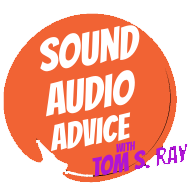how to fix overcharged headphones
how to block out sound with headphones
May 7, 2023how to coil headphone cable
May 7, 2023.jpg)
Introduction
When headphones are overcharged, it can cause damage to the battery and circuitry. Fortunately, fixing this issue is possible through simple steps.
- Disconnect the headphones from the power source and let them cool for at least an hour.
- Then, use a multimeter to check the voltage of the battery. If it is significantly higher than the expected range, discharge the battery by using it or connecting a resistor across its terminals.
- Finally, charge the headphones for an appropriate duration before using them again.
In addition to these steps, avoiding overcharging in the future can help prolong your headphone’s lifespan. Ensure that you only charge them for the recommended time and unplug them once they are fully charged. Moreover, storing them in a cool and dry place and away from extreme temperatures can prevent further damage.
A friend of mine recently faced this issue with their expensive noise-canceling headphones. They were devastated when they noticed that they could barely hold a charge after being overcharged several times by mistake. Fortunately, following these steps helped restore their functionality without having to purchase a new set of headphones.
Overcharging your headphones is the audio equivalent of leaving the stove on all night, just without the fire department showing up.
Common Problems with Overcharged Headphones
Overcharging your headphones is a frustrating issue that may leave you feeling annoyed, disappointed and perplexed. It could cause several problems that can impact the quality of your audio and damage the device itself. Here are some Common Problems with Overcharged Headphones to help recognize what is happening:
- Distorted or crackling sound
- The headphones won’t turn on or off
- Reduced battery life
- Battery expands and ruins the headphones’ shape
- Inability to hold a charge longer than it used to after being overcharged
- Muted/low volume output from one or both earbuds
It is important to know that some headphones have low-voltage protection circuits in place to prevent overcharging; thus, not allowing them past their charging capacity. Nevertheless, there are still a few potential issues that could arise.
It is always best practice to maintain optimal charging habits by disconnecting from power once fully charged; avoid leaving them plugged in for prolonged periods as this can overheat the battery, causing damage and decrease in overall performance.
A friend recently shared how he accidentally left his top-of-the-line wireless earbuds charging overnight and failed to turn them off at the socket; although they had never given him any trouble before, he woke up only to find they wouldn’t hold a full charge anymore. His audio experience was diminished as his time spent searching for solutions online was increased!
Overcharging your headphones may be bad for them, but it’s great for your exercise routine – who needs weights when you can carry around that extra battery weight all day?
How to Fix Overcharged Headphones
Overcharging your headphones can be a common mistake, but it also leaves you with a non-functional device. To bring back your overcharged headphones to their optimal performance, follow these simple steps outlined below.
- Unplug the USB cable immediately. Disconnect any power source from the headphones.
- Let the headphones cool down for at least an hour. Do not attempt to use or charge them during this time.
- Once cooled down, plug the headphones in for charging using the appropriate adapter and wait until they are fully charged.
- Check if the headphones are working correctly by connecting them to a device and playing some music.
- If they still do not work, reset the factory settings of your headphones by referring to your user manual or online resources provided by the manufacturer.
It is important to note that overcharging can damage not just your battery but other components of your headphone as well. Avoiding overcharging is essential in maintaining optimal headphone performance.
Remember to always follow manufacturer instructions and charging guidelines specific to your device. In case of further complications regarding overcharging, seek professional help from authorized service centers.
In past cases, some users have reported that attempting to fix overcharged headphones on their own has caused permanent damage. It’s crucial to exercise caution and prioritize expert guidance when needed.
Protect your headphones from overcharging by treating them like a vampire – never leave them exposed to sunlight…or a charger.
Preventative Measures to Avoid Overcharging Headphones
To ensure that your headphones don’t get overcharged, there are several preventive measures you can take. These measures go a long way in avoiding damage to your headphones and ensuring their longevity.
- Set a timer or alarm:
- Use the right charger:
- Store in a cool, dry place:
Charge your headphones for the recommended amount of time and set a timer or alarm to remind you when the charging has completed. This helps to avoid overcharging and subsequent damage to the battery.
To prevent overcharging your headphones, use the charger recommended by the manufacturer of your device. Third-party chargers may not be suitable for your device and may cause drastic damage if used repeatedly.
Heat damages batteries, leading to reduced capacity over time. Avoid leaving your headphones plugged in for prolonged periods or storing them in hot environments such as car glove boxes which could cause overheating damaging components inside.
It is essential never to charge beyond what you need while considering the recommended battery life of your headphones since it’s detrimental. Tomorrows offered performance ought not jeopardize today’s health.
Keep within these guidelines above at all times; using them will help prolong the life of your headphones while saving money. Therefore getting the most out of them while keeping them safe should always be actively on our minds.
Avoid overcharging your headphones, unless you enjoy the sound of a dying battery trying to sing its swan song.
Conclusion
When encountering overcharged headphones, taking quick action is necessary.
- Unplug your headphones from the source of power to stop further charging damage.
Next, allow the batteries to cool down for a few hours before attempting to use them again. Attempting to use them before they have fully cooled might cause the same problem and even damage their functionality.
It is recommended to replace badly damaged batteries. In some cases, replacing the entire set of batteries can be much cheaper and more convenient than having them repaired by a professional.
Lastly, preventing future overcharging damages will require regular battery maintenance. Learning how to optimize your battery life can go a long way in prolonging its lifespan.
In summary, fixing overcharged headphones requires swift action by unplugging them from the power source and allowing them time to cool down. Replacing damaged batteries altogether instead of repairing can also be an economical option. Regular battery maintenance can prevent future damages and prolong performance life.
Frequently Asked Questions
1. How do I know if my headphones are overcharged?
If you notice that your headphones aren’t holding a charge for as long as they used to, or if they are getting unusually hot when charging, they may be overcharged. Another sign of overcharging is that they won’t turn on at all.
2. Can overcharging damage my headphones?
Yes, overcharging can damage your headphones and reduce their lifespan. It can also lead to safety hazards like fires or explosions.
3. How do I fix overcharged headphones?
If your headphones are overcharged, the first thing you should do is unplug them from the charger. Let them cool down for a while, then try turning them on again. If they still won’t turn on, try resetting them by holding down the power button for a few seconds. If these steps don’t work, you may need to contact the manufacturer or a professional repair service.
4. How can I prevent overcharging my headphones?
The best way to prevent overcharging is to follow the manufacturer’s instructions for charging your headphones. Don’t leave them plugged in for longer than necessary, and avoid using non-authorized chargers or charging cables. Keep an eye on your headphones while they’re charging, and unplug them as soon as they’re fully charged.
5. Can a faulty charger cause overcharging?
Yes, using a faulty charger can cause overcharging and other problems with your headphones. Make sure you are using the correct charger for your headphones, and that it is in good working condition.
6. Are there any long-term effects of overcharging my headphones?
If you continue to overcharge your headphones, you will likely experience reduced battery life, reduced sound quality, and overall damage to your headphones. In extreme cases, overcharging can also lead to safety hazards.
I’m Tom S. Ray and I’m head mastering engineer at Audio Unity Group. I also hold a bachelor with honours degree in music from Kingston University in London, I lecture mastering to students in Edinburgh College and to my online students via my Mastering Mastery audio mastering online course.


